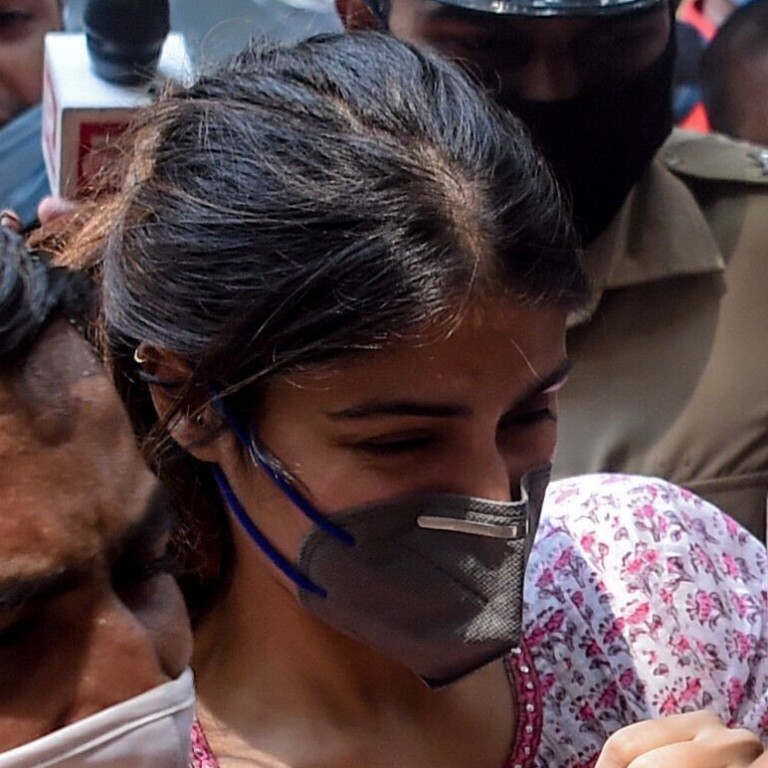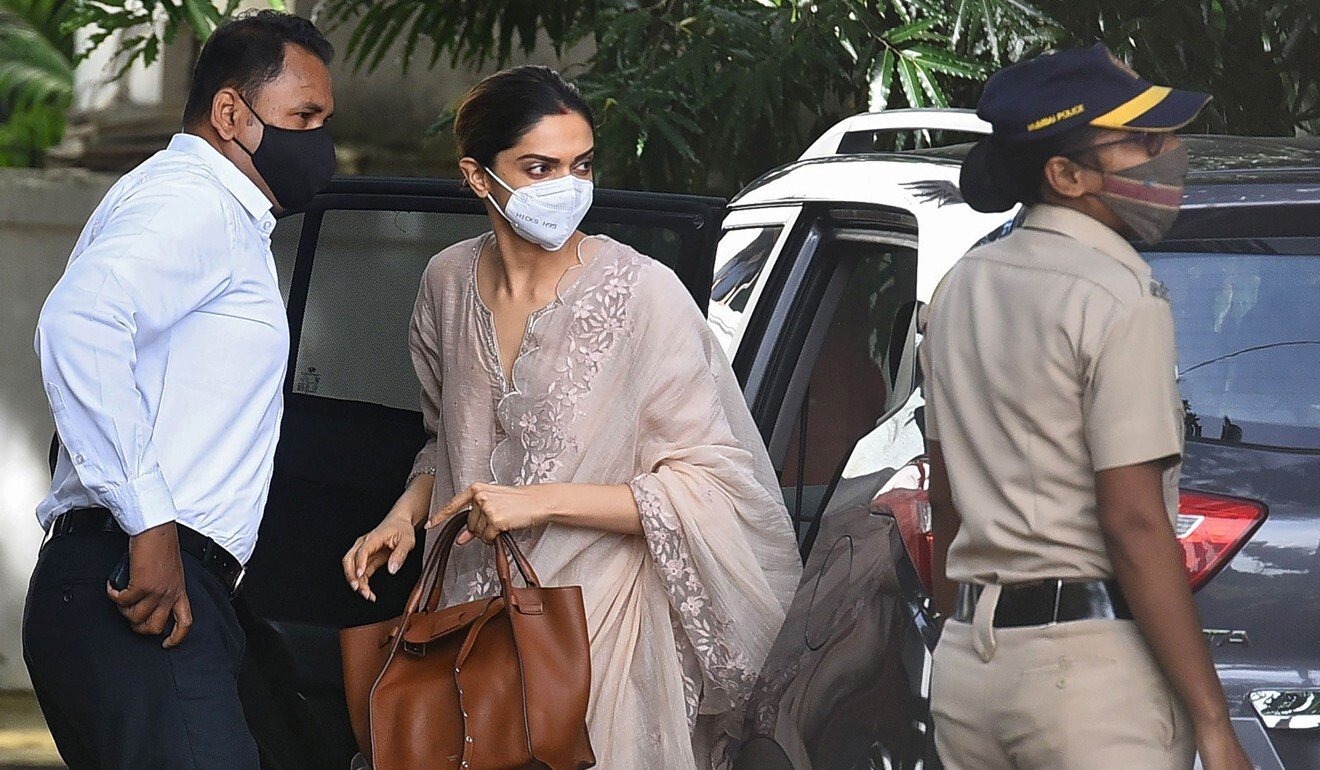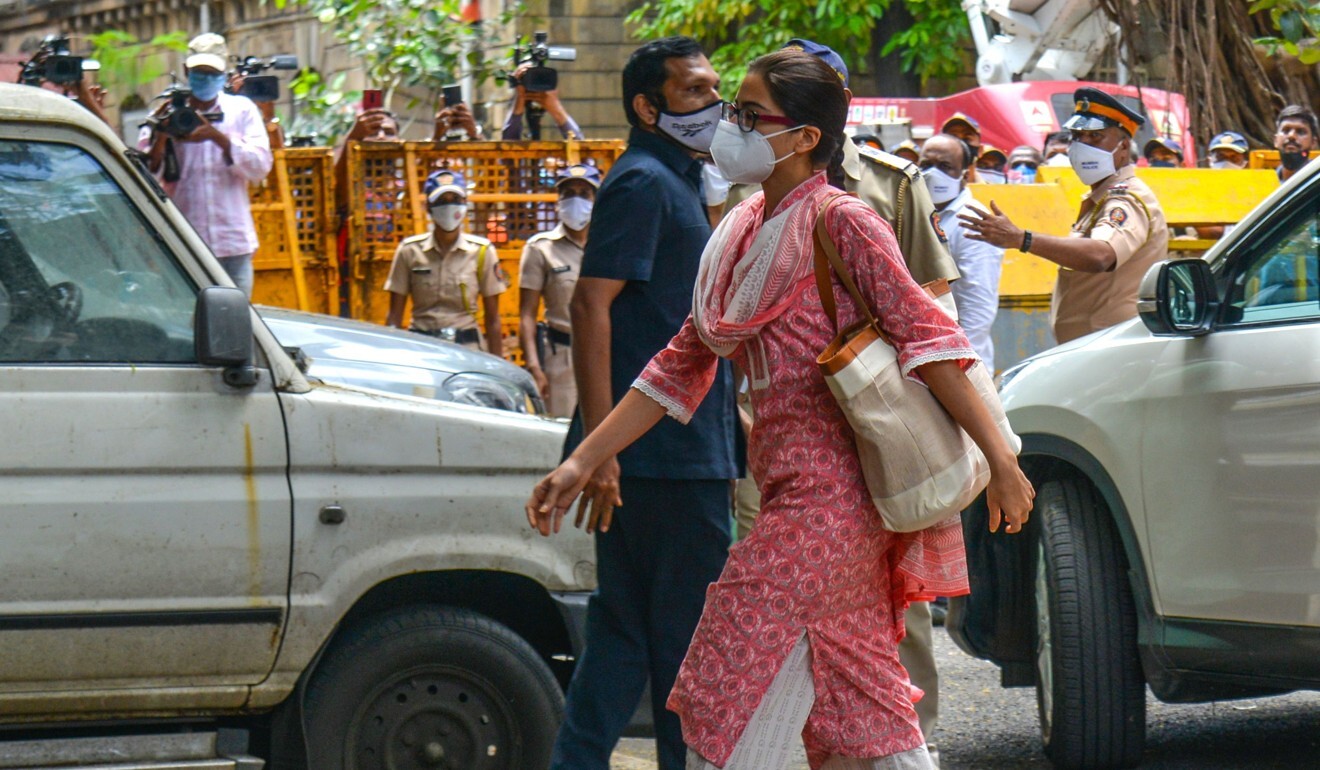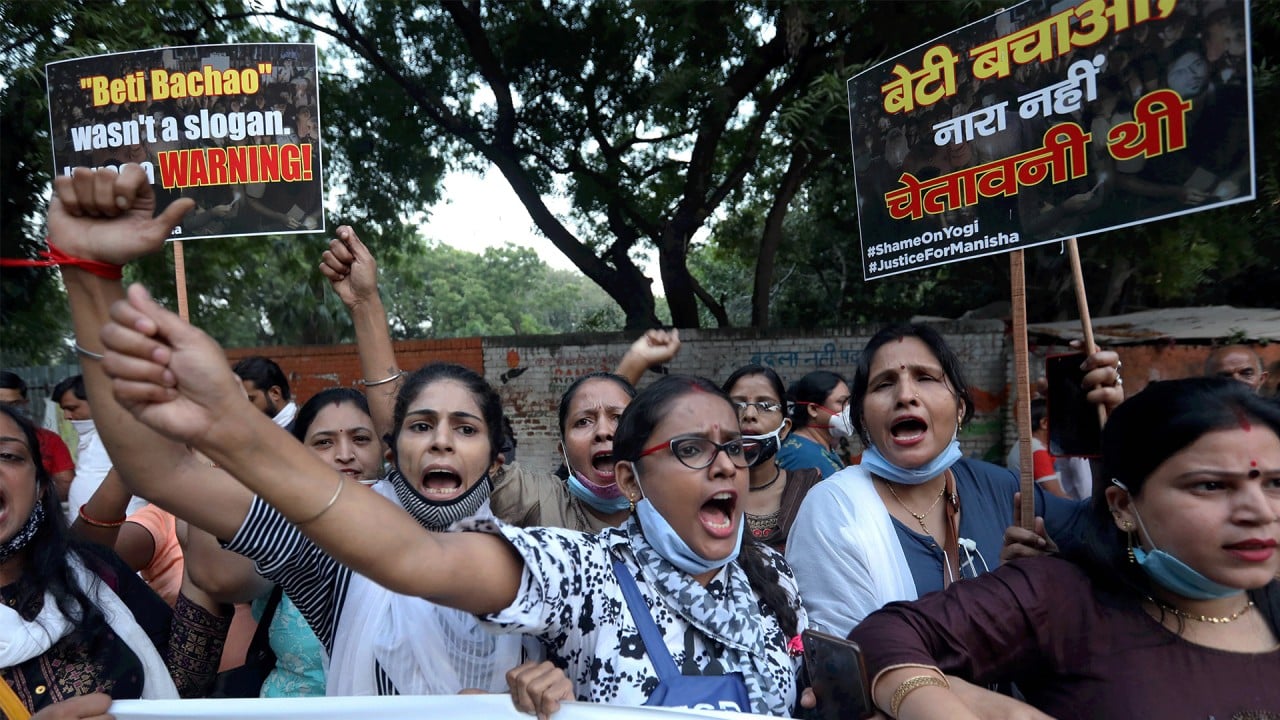
Were Bollywood actresses targeted by Indian police and media in drugs probe?
- Indian media outlets have railed on Rhea Chakraborty for her alleged involvement in the suicide of her boyfriend Sushant Singh Rajput
- Other Bollywood actresses are being investigated for alleged drug ties, leading to charges that prominent women are being targeted because of their achievements
Chakraborty was on Wednesday granted bail by Mumbai’s high court after she spent a month in jail for allegedly being involved in procuring drugs for Rajput. In allowing her to go free, the court said she was “not part of the chain of drug dealers” and had no criminal history.
She maintains that the allegations she organised and financed the consumption of drugs by Rajput were false. The government-run All India Institute of Medical Science on Saturday concluded that Rajput had died by suicide, and there was no mention of whether he had consumed drugs before his death.
There is a need to build a new India, where women are not punished for being women
The same media outlets also labelled some of Chakraborty’s fellow female Bollywood stars – including Deepika Padukone, Shraddha Kapoor, Sara Ali Khan and Rakul Preet Singh – as “druggies” soon after India’s Narcotics Control Bureau (NCB) swooped in to question them last month while investigating allegations of widespread drug abuse within the US$2.5 billion film industry.
The NCB claimed it questioned female actors after having accessed their WhatsApp chats with drug dealers. The investigations began after Chakraborty’s arrest, but were not connected to the probe into Rajput’s death.
Some of Modi’s supporters have openly spoken in favour of the perpetrators of crimes against women and troll women on social media.
Filmmaker Pritish Nandy said he believed the main reason Bollywood actresses were being targeted in the drug abuse case was because the ruling Bharatiya Janata Party was “largely misogynistic”.

Bollywood actress-singer Suchitra Krishnamoorthi questioned why no names of male actors or politicians had surfaced in the online chats the NCB said it had accessed, saying in an email that the officials involved in the investigations of the actresses “must be trying to bring these women down from all that they have achieved”.
Dipannita Sharma, known for her performances in 16 December and Ladies vs Ricky Bahl, similarly commented in an email: “Are women targeted because channels get better viewership when a top actress is shown … going [in] for questioning or coming out of a federal investigative agency office? Do people get sadistic pleasure in bringing a self-made woman down in everyone’s eyes?”
Writer and social commentator Shobha De stressed that “patriarchal societies” always make women “softer” targets. “It is easier (or so the authorities think) to intimidate women and send out a message to ‘behave’ or else,” she said in an email, referring to both the Chakraborty case and the cases of the other actresses.
But Mutha Ashok Jain, the deputy director general of NCB, who is supervising the cases of Charkaborty and the other actresses, countered the accusations of bias, telling This Week in Asia: “Whoever has been called for questioning has been called on the basis of evidence available with us, not because they are women.”

Some actresses have also questioned why Bollywood’s male heroes, who often have larger-than-life images and hold great sway over the Indian public, have not spoken up more in defence of Chakraborty and the other women.
Krishnamoorthi, who acted with Shah Rukh Khan in Kabhi Haa Kabhi Naa, said she was disappointed with the mostly stoic silence of her male counterparts. “It is a silence of convenience. Everybody wants to just save themselves,” she said.
Others have also questioned why the spotlight has fallen on how some actresses may or may not use marijuana or other recreational drugs, and not on how the drugs are trafficked. India’s border security force and the Army, for example, have long been implicated in moving drugs into the country.
“In all matters, wherever the trade is lucrative, there exists a nexus between a section of law enforcers and the criminals, otherwise how would such large consignments of drugs enter the country?” said retired Lieutenant General H.S. Panag of the Indian Army, who added that the military does sometimes take action against military officials found to be involved in the drug trade.
Underlining that she was not playing the “women’s card”, Urmila Matondkar, known for her performances in Rangeela and Satya, said: “It’s important to investigate if some women actors are involved in the case, but the drug nexus across the country needs to be looked deeper into too.”

02:01
Protests in India continue over second gang rape against low-caste woman
While many popular actresses have come to the defence of Chakraborty and the other women arrested for their supposed drug connections, other actresses have spoken out against drug use within the industry.
Kangana Ranaut, for one, tweeted that there was wide-scale drug abuse within the industry and that if the NCB did drug tests on Indian A-listers, many would be behind bars.
“Is calling out patriarchy … proof that I am part of some gang?” she said in an email to This Week in Asia, while also adding that she was, in fact, a teetotaller.
Sharma said scrutiny by the media and social media of actresses mirrored how Bollywood women and their “characters” were forced into the spotlight, partly because of the perceptions that some Bollywood films have created and promoted about women – like when a woman wears a short dress and smokes a cigarette she is considered “fast”, while a woman in traditional “shalwar kameez” dress is considered “cultured”.
Said Krishnamoorthi: “There is a need to build a new India, where women are not punished for being women.”
